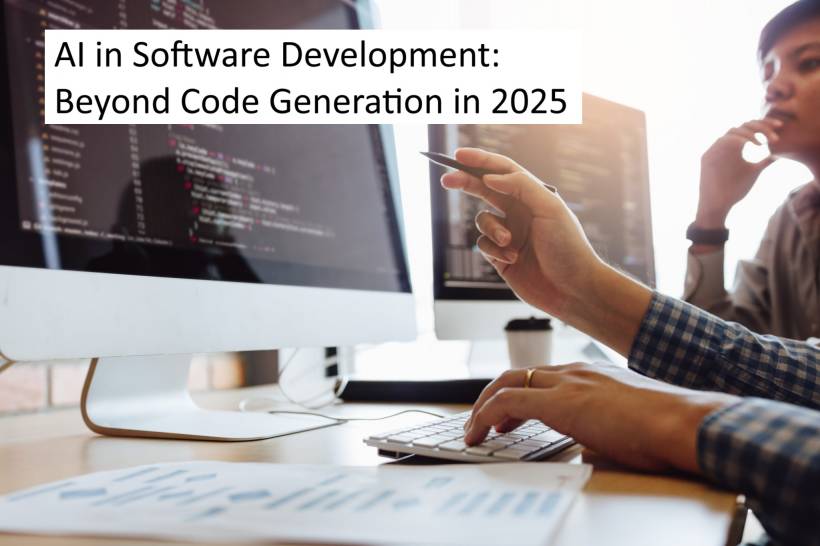Artificial intelligence shook up the tech world last year—and its impact is only deepening in 2025. Companies that have already adopted AI in their software development processes are beginning to see real returns, enabling them to shift from experimentation to strategic refinement.
According to a recent GitLab study, 78% of organisations are either already leveraging AI in development or planning to do so within the next two years. So far, the adoption has been cautious, often focused on low-risk or experimental projects. But this year, forward-thinking companies are stepping up their AI game, embedding intelligent tools across the entire software development lifecycle.
Here are three key trends shaping how AI is redefining software development this year:
1. Platform Engineers Will See Big Gains from AI
AI is evolving rapidly in its ability to recognise patterns and reduce friction in software delivery. For platform engineering teams, this means greater automation and streamlined workflows, particularly in areas like release management, compliance, and policy enforcement.
With AI in the mix, platform engineers can codify processes—training, guidelines, security checks—and automate continuous improvements. Even better, they can create reusable components that simplify delivery pipelines, allowing non-technical users to participate in app development using low-code tools for tasks like environment setup and automated testing.
In short, AI is making platform engineering more efficient, inclusive, and scalable.
2. AI Agents Will Reshape the Software Supply Chain
The role of AI agents is set to expand well beyond simple assistance. These autonomous tools will start to take on end-to-end responsibilities across the software supply chain—from continuous integration (CI) to continuous deployment (CD).
At first, expect innovation in the open-source space, where developers will build and share AI-powered agents for libraries, tools, and frameworks. Once the benefits become clear, enterprise adoption will follow, with internal teams customising AI agents to suit their operational needs.
This shift toward fully integrated, AI-powered development pipelines will mark a turning point, transforming software supply chains into self-improving, intelligent systems.
3. Cost Management and Data Governance Take Center Stage
As AI adoption grows, so too does the focus on financial efficiency and cloud cost management. In 2025, organisations are shifting from prioritising development speed to evaluating the real return on investment (ROI) of their digital infrastructure.
This is where FinOps (Financial Operations) comes in—a practice that connects finance, engineering, and product teams to align on cost visibility, budgeting, and performance evaluation. Through FinOps, companies will closely track cloud usage, identify waste, and prioritise applications that deliver measurable value.
Additionally, as data privacy regulations tighten and cloud costs rise, we'll likely see a stronger push toward hybrid and on-premises environments, where organisations can exercise greater control over data governance and spending.
Strategic AI Adoption: The Key to Staying Competitive
The message is clear: organisations that treat AI as a long-term strategy—not just a trend—will pull ahead. Whether it's by embedding AI agents across workflows, supercharging platform engineering, or improving cloud cost efficiency, AI offers tangible benefits when applied deliberately.
As companies continue to explore the intersection of AI, development, and digital infrastructure, 2025 will be a defining year—not just for how software is built, but for how organisations operate, innovate, and grow in an increasingly intelligent ecosystem.






Comments